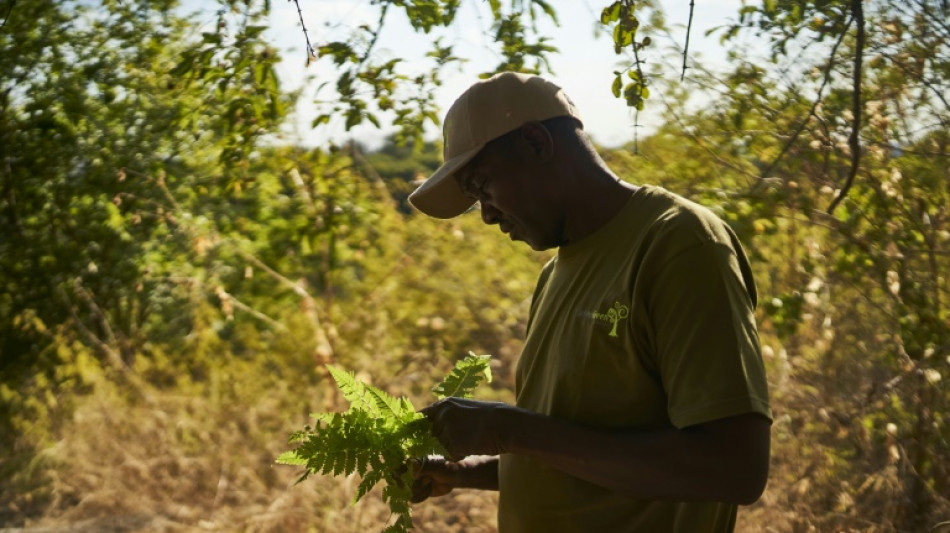
-
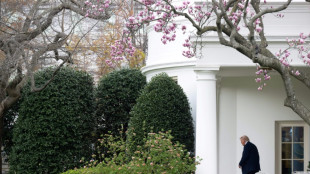 Meme politics: White House embraces aggressive alt-right online culture
Meme politics: White House embraces aggressive alt-right online culture
-
China launches military drills in Taiwan Strait

-
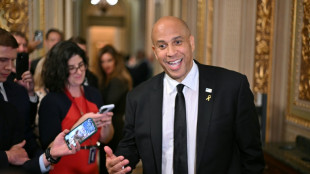 US senator smashes record with 25-hour anti-Trump speech
US senator smashes record with 25-hour anti-Trump speech
-
Brazil binman finds newborn baby on garbage route

-
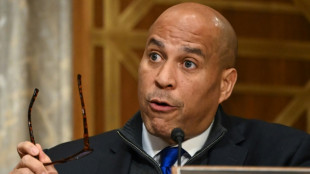 US senator smashes record with marathon anti-Trump speech
US senator smashes record with marathon anti-Trump speech
-
Trump advisor Waltz faces new pressure over Gmail usage
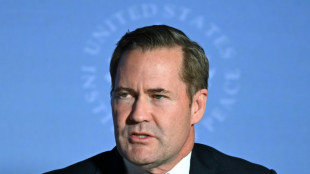
-
 Niger junta frees ministers of overthrown government
Niger junta frees ministers of overthrown government
-
Trump set to unleash 'Liberation Day' tariffs
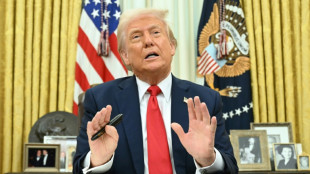
-
 Boeing chief to acknowledge 'serious missteps' at US Senate hearing
Boeing chief to acknowledge 'serious missteps' at US Senate hearing
-
Real Madrid hold Real Sociedad in eight-goal thriller to reach Copa del Rey final

-
 Nuno salutes 'special' Elanga after stunning strike fires Forest
Nuno salutes 'special' Elanga after stunning strike fires Forest
-
PSG survive scare against Dunkerque to reach French Cup final

-
 Sundowns edge Esperance as crowd violence mars quarter-final
Sundowns edge Esperance as crowd violence mars quarter-final
-
Nottingham Forest beat Man Utd, Saka scores on Arsenal return

-
 Elanga wonder-goal sinks Man Utd as Forest eye Champions League berth
Elanga wonder-goal sinks Man Utd as Forest eye Champions League berth
-
Stock markets mostly advance ahead of Trump tariffs deadline

-
 US movie theaters urge 45-day 'baseline' before films hit streaming
US movie theaters urge 45-day 'baseline' before films hit streaming
-
Saka scores on return as Arsenal beat Fulham

-
 Third-division Bielefeld shock holders Leverkusen in German Cup
Third-division Bielefeld shock holders Leverkusen in German Cup
-
Ball-blasting 'Torpedo bats' making waves across MLB opening weekend

-
 Newsmax shares surge more than 2,000% in days after IPO
Newsmax shares surge more than 2,000% in days after IPO
-
Thousands of Hungarians protest against Pride ban law

-
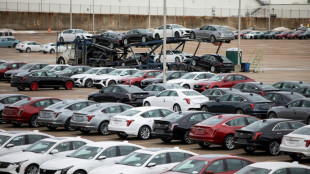 GM leads first quarter US auto sales as tariffs loom
GM leads first quarter US auto sales as tariffs loom
-
Tesla sales tumble in Europe in the first quarter
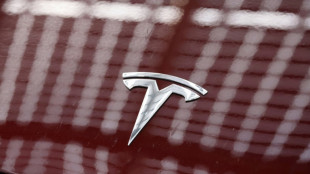
-
 No 'eye for an eye' approach to US tariffs: Mexico
No 'eye for an eye' approach to US tariffs: Mexico
-
NFL club owners back dynamic kickoffs, delay tush push vote

-
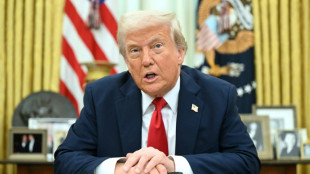 Trump 'perfecting' new tariffs as nervous world braces
Trump 'perfecting' new tariffs as nervous world braces
-
Trump nominee says to press UK on Israel arms
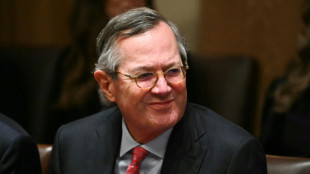
-
 French court says Le Pen appeal ruling could come before presidential vote
French court says Le Pen appeal ruling could come before presidential vote
-
The battle to control assets behind Bosnia crisis

-
 Prabhsimran powers Punjab to IPL win over Lucknow
Prabhsimran powers Punjab to IPL win over Lucknow
-
Mass layoffs targeting 10,000 jobs hit US health agencies

-
 Tiger's April Foolishness: plan to play Masters just a joke
Tiger's April Foolishness: plan to play Masters just a joke
-
Myanmar quake toll passes 2,700, nation halts to honour victims

-
 Turkish fans, artists urge Muse to cancel Istanbul gig
Turkish fans, artists urge Muse to cancel Istanbul gig
-
US seeks death penalty for accused killer of insurance CEO

-
 UK govt moves to block sentencing guidelines for minority defendants
UK govt moves to block sentencing guidelines for minority defendants
-
Trump puts world on edge as 'Liberation Day' tariffs loom
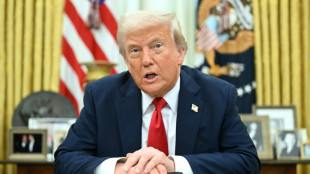
-
 Swedish journalist jailed in Turkey kept 'isolated': employer
Swedish journalist jailed in Turkey kept 'isolated': employer
-
Stock markets advance ahead of Trump tariffs deadline

-
 Gulf between Everton and Liverpool has never been bigger, says Moyes
Gulf between Everton and Liverpool has never been bigger, says Moyes
-
Finland to withdraw from anti-personnel mine ban treaty
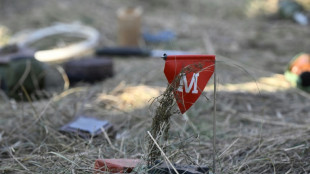
-
 UK vows £20 million to boost drone and 'flying taxi' services
UK vows £20 million to boost drone and 'flying taxi' services
-
Ford's US auto sales dip in first quarter as tariffs loom

-
 Digging for box office gold, 'A Minecraft Movie' hits cinemas
Digging for box office gold, 'A Minecraft Movie' hits cinemas
-
Southampton boss Juric desperate to avoid Premier League 'worst team' tag

-
 Thailand rescue dogs double as emotional support
Thailand rescue dogs double as emotional support
-
Five takeaways from Marine Le Pen verdict

-
 Stock markets split ahead of Trump tariffs deadline
Stock markets split ahead of Trump tariffs deadline
-
Turkish fans, artists urge Muse to cancel Istanbul gig over protest dispute


Zimbabwe's carbon credit takeover spooks locals, investors
It is shortly after sunrise, and Peter Mudenda looks for elephant tracks on a dirt road surrounded by mopane trees.
Once a farmer, the 49-year-old gave up the plough several years ago when a massive forest protection project was launched in Binga, a remote semi-arid district in northern Zimbabwe.
He now makes a living digging fireguards, taking care of trees and keeping tabs on wildlife.
"I was getting a good yield... but I was quick to appreciate that we could benefit more as a community from a conservancy," Mudenda told AFP.
The conservancy is part of a wider project that makes money selling carbon credits, a financial tool aimed at tackling climate change.
But in Zimbabwe, the model has been upended by a shock announcement that the government intends to claim half of all revenues.
As more countries look to regulate the sector, the move has created uncertainty in a $2 billion global market, stoking fears that other governments may follow suit, analysts say.
"The approach they've taken is quite radical and a bit blunt," said Gilles Dufrasne of Carbon Market Watch, an advocacy group.
The scheme in Binga is part of Kariba REDD+, the largest carbon credit initiative of its kind.
Carbon credits aim at providing an important funding source for conservation.
Companies or individuals buy credits from entities that remove or reduce greenhouse gas emissions, such as investing in renewable energy, planting trees or nurturing old forests.
Each credit is worth the equivalent of one tonne of carbon dioxide -- a useful badge of honour for those keen on proving their green credentials.
A partnership between Zimbabwean firm Carbon Green Investments and South Pole, a Swiss-based carbon offsets developer, Kariba REDD+ was launched 2011.
It now covers 785,000 hectares (1.9 million acres) of forest, fostering a series of community-led activities from beekeeping to ecotourism.
Since its inception it has generated more than 100 million euros ($110 million) from the sale of carbon credits, according to South Pole -- a figure that is expected to mushroom.
- Carbon credit boom -
The global market is forecast to grow at least five-fold to $10 billion by 2030, according to a 2023 estimate by oil giant Shell and the Boston Consulting Group (BCG).
Much of the trade happens between companies in a so-called voluntary market.
But countries are also negotiating an international carbon offset trading system to reach their climate targets under the umbrella of United Nations-led climate talks.
South Pole says most of Kariba's income was produced over the past two years. Gucci and Nestle are among firms that have bought into it.
Last month, Zimbabwe, which is cash strapped and in desperate need of foreign currency, said it wants a slice of the pie.
Francis Vorhies, a conservation economist at South Africa's Stellenbosch University, said there was a logic behind Zimbabwe's move, given that the national market was based largely on government-controlled resources.
But the new policy has spooked investors and locals alike.
"This is business, not charity work. There are investors putting in their money," said Elmon Mudenda, a local councillor in Binga, who shares the same surname as the former farmer but is not related to him.
"Government must be careful to come up with friendly policies, so that we don't have communities going back to a mindset where they don't value the conservation of forests."
Under the new policy, 50 percent of all revenue from carbon offset projects should go to the national treasury.
- 'Devil in the details' -
At least another 20 percent should go to local investors, while and foreign partners would be allowed to pocket no more than 30 percent.
All carbon credit deals are to be subjected to central approval and all agreements previously entered would be declared "null and void", Harare declared last month.
"(It) does raise the question of what they're going to do with the money," said Dufrasne of Carbon Market Watch.
South Pole says it initially took a 25 percent commission on Kariba sales, before it started to buy the credits for itself at a time of low prices to later resell them.
About 20 percent of revenue currently goes to fund environmental protection activities, with the rest split between local councils, communities and leaseholders, according to the firm's website.
Stephen Wentzel, director of Carbon Green Investments, said Kariba would remain viable if the government was to put its cut back into the project.
But due to Zimbabwe's "historical reputation," foreign firms might shy away from buying credits directly, and harbour suspicions about how the funds will be used, he said.
"The devil is in the details," said South Pole's spokeswoman Nadia Kahkonen, explaining no concrete regulation has yet followed the announcement.
"Speculation and political discourse currently creates even more uncertainty... and will slow down if not halt investments in local projects."
B.Finley--AMWN



